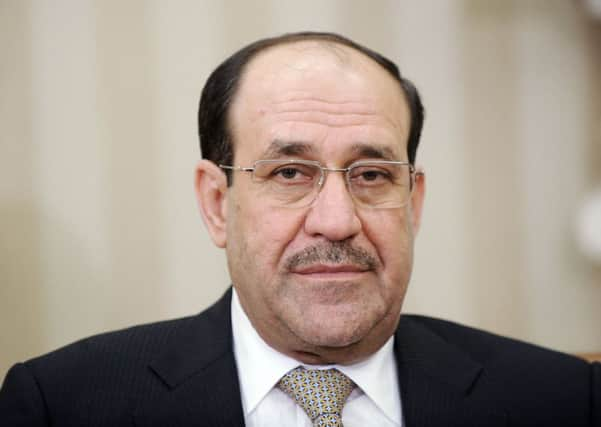Iraqi Shiite law legalises marital rape


The measure, aimed at creating different laws for Iraq’s Shiite majority, could also stoke sectarian divisions with the minority Sunni population which almost ripped the country apart after the US-led invasion in 2003. It also comes as more under-18s are being married off.
“That law represents a crime against humanity and childhood,” said activist Hana Adwar. “Married underage girls suffer physical and psychological abuse.”
Advertisement
Hide AdAdvertisement
Hide AdIraqi law sets the legal age for marriage at 18 without “parental approval”. Girls aged 15 can be married off at a guardian’s behest.
The proposed new legislation, known as the Jaafari Personal Status Law, is based on the principles of a Shiite school of religious law founded by Jaafar al-Sadiq, the sixth Shiite imam.
Iraq’s justice ministry late last year introduced the draft measure to the cabinet, which approved it last month despite opposition from rights groups.
The draft law does not set a minimum age for marriage. Instead, it mentions an age in a section on divorce, setting rules for divorces of girls who have reached the age of nine in the lunar Islamic calendar. It also says that is the age girls reach puberty. Since the Islamic calendar year is ten or 11 days shorter than the Gregorian calendar, that would be the equivalent of eight years and eight months.
The bill makes the father the only parent with the right to accept or refuse a marriage proposal. Already, statistics show that nearly 25 per cent of marriages in Iraq involved someone under 18 in 2011, up from 21 per cent in 2001 and 15 per cent in 1997. Such arranged marriages are prevalent in rural areas.
Also under the proposed measure, a husband can have sex with his wife “without her consent”, essentially legalising marital rape. The bill also prevents women leaving the house without the husband’s permission, would restrict women’s rights to custody after divorce and make it easier for men to take more than one wife.
Parliament must still ratify the bill before it becomes law. That is unlikely before elections on 30 April, though the cabinet support suggests it remains a priority for Shiite prime minister Nouri al-Maliki’s administration. Mr al-Maliki is widely expected to seek a third term.
Baghdad-based analyst Hadi Jalo suggested the proposed law may be an electioneering tactic, to appeal to conservative Shiites.
Advertisement
Hide AdAdvertisement
Hide Ad“Some influential Shiite politicians have the impression that they should do their best to make any achievement that would end the injustice that had been done against the Shiites in the past,” Mr Jalo said.
Sunni female politician Likaa Wardi said the law was a blatant violation of human rights.
“The Jaffari law will pave the way to the establishments of courts for Shiites only, and this will force others sects to form their own courts. This move will widen the rift among the Iraqi people,” she said.
New York-based Human Rights Watch also strongly criticised the law.
“Passage of the Jaafari law would be a disastrous and discriminatory step backward for Iraq’s women and girls,” deputy Middle East director Joe Stork said. “This law would only entrench Iraq’s divisions while the government claims to support equal rights for all.”
It is unclear how much support the bill enjoys among Iraqi Shiites, but Mr Jalo believes that it would face opposition from secular members of the sect.
Qais Raheem, a Shiite government employee living in eastern Baghdad, said: “This law legalises rape and we should all reject it.”